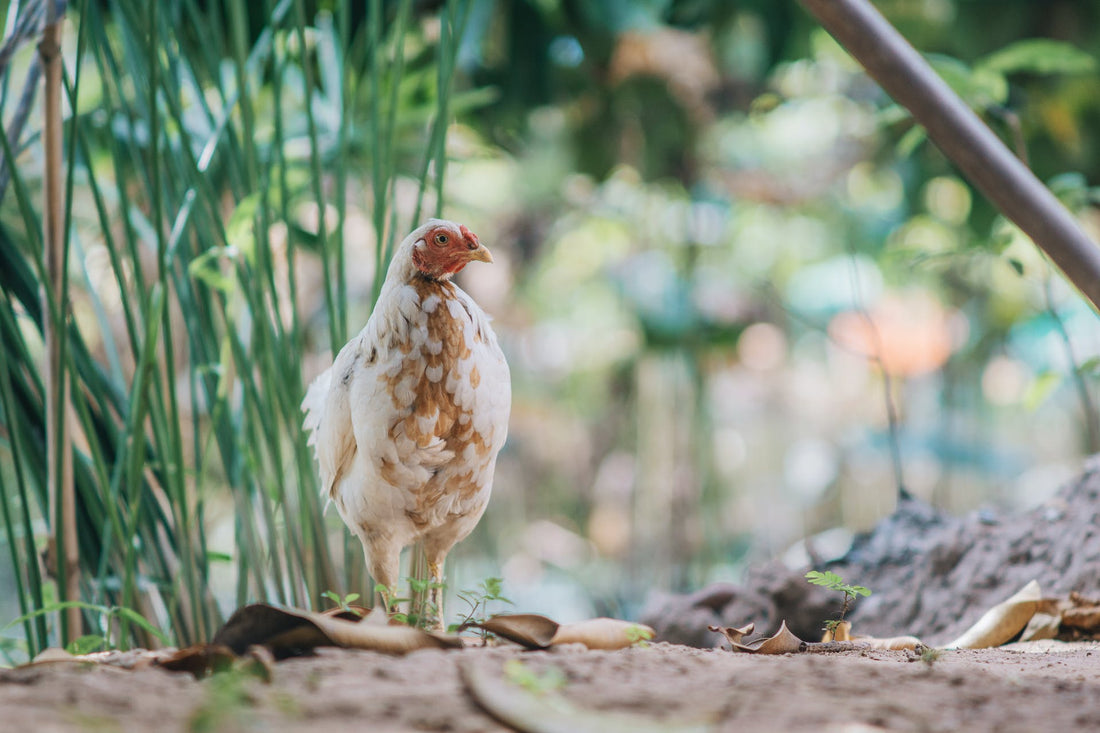Chickens, much like any other living creature, require a balanced and nutritious diet to maintain their health and productivity. Among the various nutrients essential for their well-being, calcium stands out, particularly for laying hens. This blog delves into the significance of calcium in a chicken's diet, its impact on egg production, the advantages of oyster shells as a calcium source, and an overview of the intricate process of egg formation.
The Importance of Calcium
Calcium plays a pivotal role in a chicken's health. It is crucial for strong bone development and is particularly vital in forming a strong eggshell. A hen's body prioritizes egg production, often at the expense of its own calcium reserves. Therefore, insufficient calcium intake can lead to health issues like osteoporosis and results in eggs with weak or no shells.
Calcium's Influence on Egg Production
During eggshell formation, a hen requires a substantial amount of calcium, approximately 2 grams per egg. The eggshell, composed predominantly of calcium carbonate, acts as a protective case for the developing embryo and is crucial for the egg's structural integrity. Lack of adequate calcium in the diet can lead to a decline in egg production and poor egg quality, impacting both the poultry keeper and the hens negatively.
Oyster Shells as a Superior Calcium Source
Oyster shells emerge as an excellent source of calcium for chickens. These shells are mostly made of calcium carbonate, which is highly bioavailable, meaning chickens can easily absorb and utilize it. Incorporating ground oyster shells into a chicken's diet can significantly improve eggshell quality. It's important to provide oyster shells separately from the main feed, allowing chickens to consume as per their calcium needs.
A Balanced Diet for Healthy Eggs
A well-rounded diet is essential for the overall health and productivity of laying hens. While calcium is a crucial component for strong eggshells, other nutrients play significant roles in supporting the hen's health and enhancing the quality of the eggs they produce.
Proteins
Importance: Proteins are vital for growth, repair, and overall body maintenance. They are also crucial for the production of eggs, which are high in protein.
Sources: High-quality commercial layer feeds typically contain about 16-18% protein. Natural sources like mealworms, fish meal, and legumes can be added to enrich the diet.
Carbohydrates
Importance: Carbohydrates provide energy for daily activities and bodily functions.
Sources: Grains such as corn, wheat, and oats are excellent carbohydrate sources. These should be balanced with other dietary components to avoid excessive weight gain.
Fats
Importance: Fats are another essential source of energy and help in the absorption of fat-soluble vitamins.
Sources: Fats are naturally present in grains and commercial feeds. Additional sources like flax seeds can be provided in moderation.
Vitamins and Minerals
Vitamins: Vitamins A, B, D, E, and K are crucial for immune function, vision, blood clotting, and overall health.
Minerals: Besides calcium, minerals like phosphorus, potassium, and magnesium are essential for various bodily functions, including nerve function and egg production.
Sources: A variety of greens, fruits, and vegetables can supplement these vitamins and minerals. Specialized poultry feeds are also formulated to provide these nutrients in the right balance.
Greens and Vegetables
Importance: Greens are important for providing vitamins and minerals and can aid in digestion.
Sources: Leafy greens like kale, spinach, and lettuce, as well as vegetables like carrots and squash, can be excellent supplements to a chicken’s diet.
Grit
Importance: Grit aids in digestion by grinding down the food in the gizzard, especially for chickens that have access to whole grains or forage.
Sources: Commercial grit is available, or small pebbles and coarse sand can be used.
Water
Importance: Often overlooked, water is essential for life and plays a critical role in bodily functions, including egg production.
Sources: Fresh, clean water should be available at all times. Waterers should be cleaned regularly to prevent the spread of disease.
Diet Variations Based on Life Stage
Chicks: Starter feeds high in protein to support rapid growth.
Pullets: Grower feeds that balance protein with other nutrients.
Laying Hens: Layer feeds with adequate calcium and balanced nutrition for egg production.
Older Hens: May require diets lower in calcium and protein to avoid kidney damage and other health issues.
By providing a balanced diet that includes a mix of proteins, carbohydrates, fats, vitamins, minerals, greens, and adequate water, poultry keepers can ensure that their chickens are not only healthy but also capable of producing high-quality eggs. Regularly monitoring the health of the chickens and adjusting their diet as needed based on their age, health, and egg production levels is key to maintaining a healthy flock.
The Fascinating Process of Egg Formation
Understanding how eggs are formed gives insight into why calcium and a balanced diet are so crucial. Egg formation begins in the hen's ovary. Once the yolk is released, it travels through the oviduct, where the egg white, membranes, and eventually the shell are formed. This process takes about 24-26 hours, with the shell forming in the last 18-20 hours. The shell glands in the oviduct extract calcium from the blood, which is then deposited as calcium carbonate to form the shell. Without sufficient calcium, this process can't be completed effectively.
Supplementing the Chicken Diet
To ensure chickens receive enough calcium, it’s important to consider their life stage and laying phase. Younger chickens and non-laying hens require less calcium. Over-supplementation can be detrimental, leading to kidney damage and other health issues. As such, calcium sources like oyster shells should be offered separately, allowing chickens to self-regulate their intake based on their individual needs.
The health and productivity of laying hens are directly linked to their diet, with calcium playing a starring role. A well-balanced diet, enriched with calcium sources like oyster shells, ensures strong eggshells and a healthy laying cycle. Understanding the nutritional needs of chickens and the biological process of egg formation empowers poultry keepers to manage their flocks responsibly, leading to happier, healthier chickens and better quality eggs.

